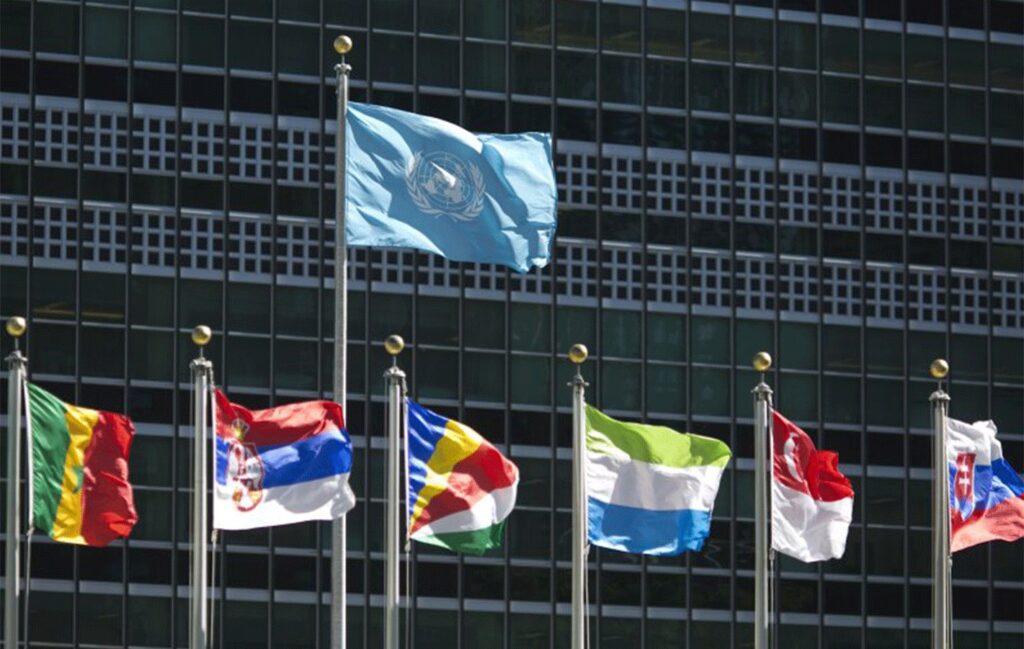
In January 2024, Sierra Leone returned to the UNSC after 53 years since its previous and first tenure. Although frozen conflicts including the Middle East and the Question of Palestine remain on the Council’s agenda, there have been marked global geopolitical shifts, from the end of colonialism, the end of the Cold War, the emergence of new global powers, including China, and the rising influence of BRIC countries. This has led to the expressed view that the current geopolitical context is multipolar. Accordingly, the multilateral institutions and multilateralism must respond to contemporary global realities, be equitable, representative, and democratic.
In the 53 years, Sierra Leone has had a storied journey and experienced many challenges and transformations. In 2002, the decade long civil war was declared over, thus ushering a period of peacebuilding, peace consolidation and recovery. This was achieved in partnership with the international community led by the United Nations (UN). Today, Sierra Leone in many respects is seen as a model in nurturing the dividend of peace, and continually working to ensure peace and security, deepening democratic governance, and social cohesion. The concrete actions and policies development are aimed at addressing the root causes of conflict. This experience remains its most valuable asset within the work of the UNSC.
In addition to its priorities during its tenure as an elected members of the UNSC, in the August 2024 Presidency, Sierra Leone will particularly spotlight as signature events firstly, the imperative to address the structural imbalance in the composition of the UNSC, through a focused discussion on its reform, examining the topics of equitable representation and rectifying the historical injustice being perpetuated against Africa. Africa, the largest regional group at the United Nations with 54 member States, and a continent of more than 1.8 billion people, is without a permanent seat in the Council, and grossly underrepresented in the non-permanent category with three seats, one seat alternated with Arab representation.
This first signature event on the reform of the UNSC will be held as a high-level debate of the UNSC to be presided over by His Excellency, Brig. (Rtd.) Dr. Julius Maada Bio, President of the Republic of Sierra Leone and Coordinator of the African Union Committee of Ten Heads of State and Government on the reform of the UN Security Council (C-10) on 12 August 2024. The Secretary-General of the United Nations and President of the General Assembly for the 78th session have been invited to brief the Council. They will be joined by a briefer from academia.
Member States and Interest Groups engaged in Intergovernmental Negotiations at the United Nations General Assembly on Security Council reform will participate in the debate. This includes C-10 Heads of State and Government or their representatives. The event presents a historical and unique opportunity for an unprecedented debate in the Council. It will also be an excellent build up to the Summit of the Future in September 2024, with input to the Summit’s Pact for the Future containing the critical paragraph that Africa’s case is special and therefore to be prioritized.
The second signature event will be an open debate of the UNSC to be held on 21 August 2024, and aimed at highlighting the importance of peacebuilding, the utility of prevention as part of the myriad of tools in maintaining international peace and security in the New Agenda of Peace, the UN Secretary-General’s prevention strategy, using its lived experience to inform current debate on concrete measures to prevent conflict, and discussing the role of women as well. The meeting will be presided over by the Minister of Foreign Affairs and International Cooperation of Sierra Leone. It builds on a previous peacebuilding event held by Japan during its Presidency of the Council, and an excellent precursor to the Summit of the Future.
Part of the objective of the peacebuilding signature event is to spotlight Sierra Leone’s peace journey and providing the opportunity for discussing aspects of the New Agenda for Peace, conflict prevention tools, the UN Secretary-General’s prevention strategy and the role of women in conflict prevention and resolution. Sierra Leone is not only seen as a model of success in conflict resolution, peacebuilding and consolidation, but also a leader in implementing the New Agenda of Peace, particularly in reference to institution building and preventive actions. Sierra Leone’s month-long Peace Exhibit at the Delegate’s Entrance will provide a visual backdrop to this event.
Before the signature events, Sierra Leone also intends to convene a thematic briefing on “Women and Peace and Security (WPS): Gender-Responsive Approach to the United Nations Mission Transitions”. This briefing is part of the implementation of the WPS commitments made by Sierra Leone during its tenure at the UNSC. The briefing seeks to increase awareness and strengthen action by the Security Council in the context of accelerated drawdown trends amidst withdrawals of peacekeeping missions or operations.
During Sierra Leone’s presidency of the UNSC, the international community will celebrate the 75th Anniversary of the four Geneva Conventions of 1949. The significant milestone in the codification of the rules for the protection of civilians, armed forces, and others during armed conflict will be commemorated in Geneva at the request of Switzerland (an elected member of the Council). Sierra Leone has agreed to include the event on the programme of work of the Council during the August 2024 presidency.
It is noteworthy that Sierra Leone has prioritized accountability, premised on, inter alia, due compliance with international law, including international humanitarian law (IHL), as embodied by the Geneva Conventions. When IHL is respected, lives are saved, and the dignity of people upheld. Even wars have rules. In the current context of conflicts, for instance, in Gaza, Ukraine, Sudan the need for IHL compliance has become even more prominent, and accountability imperative. “


